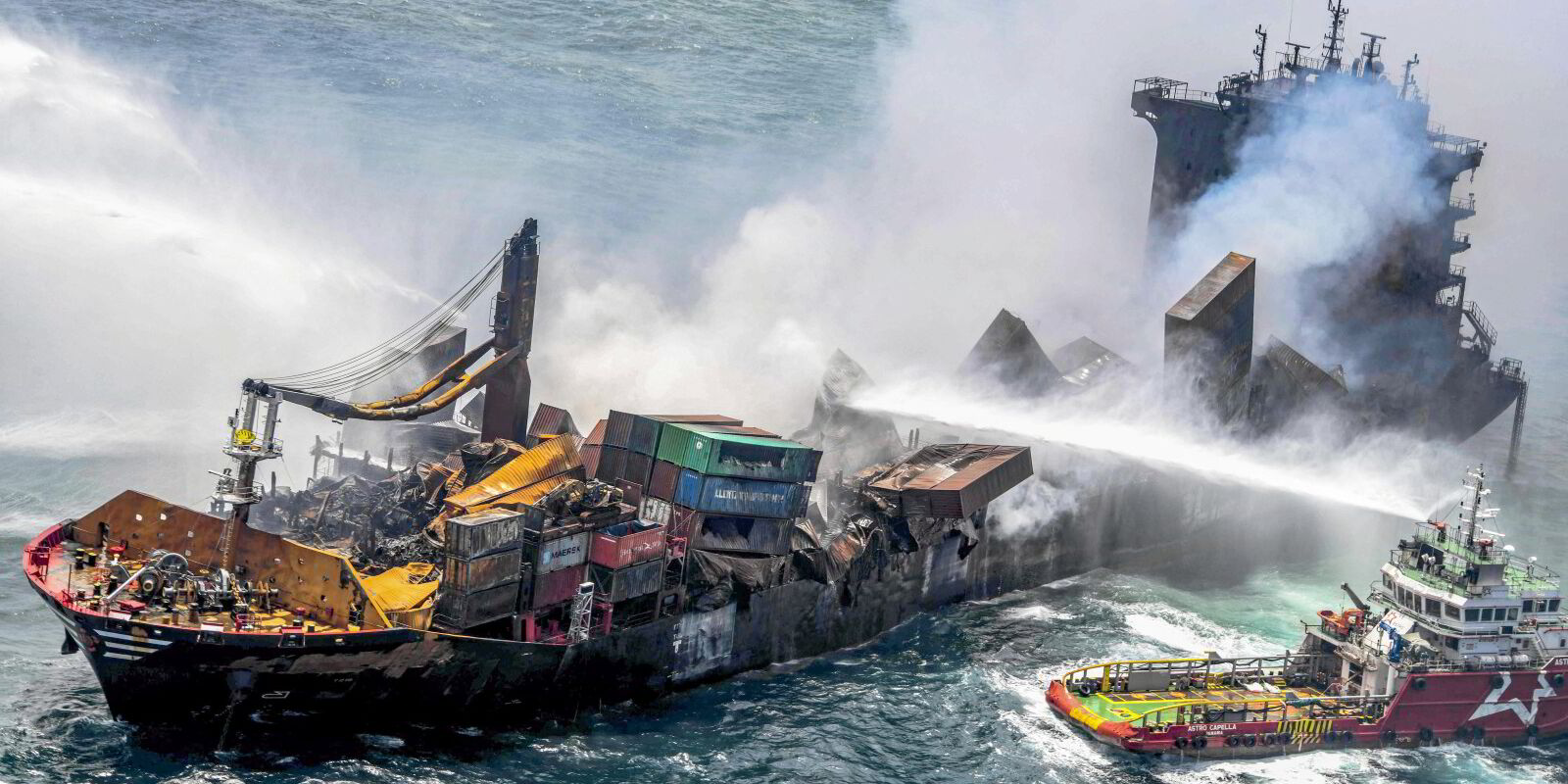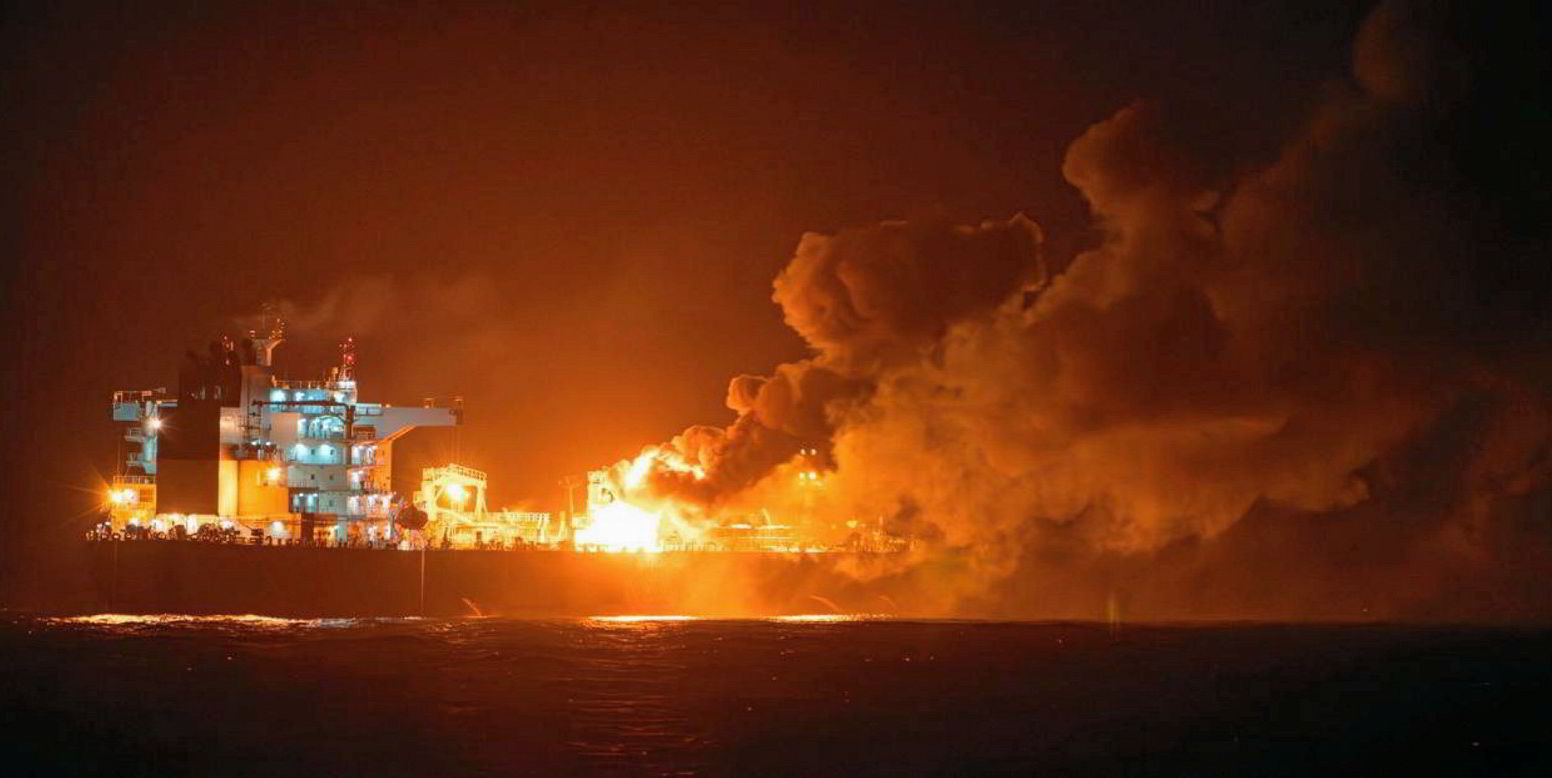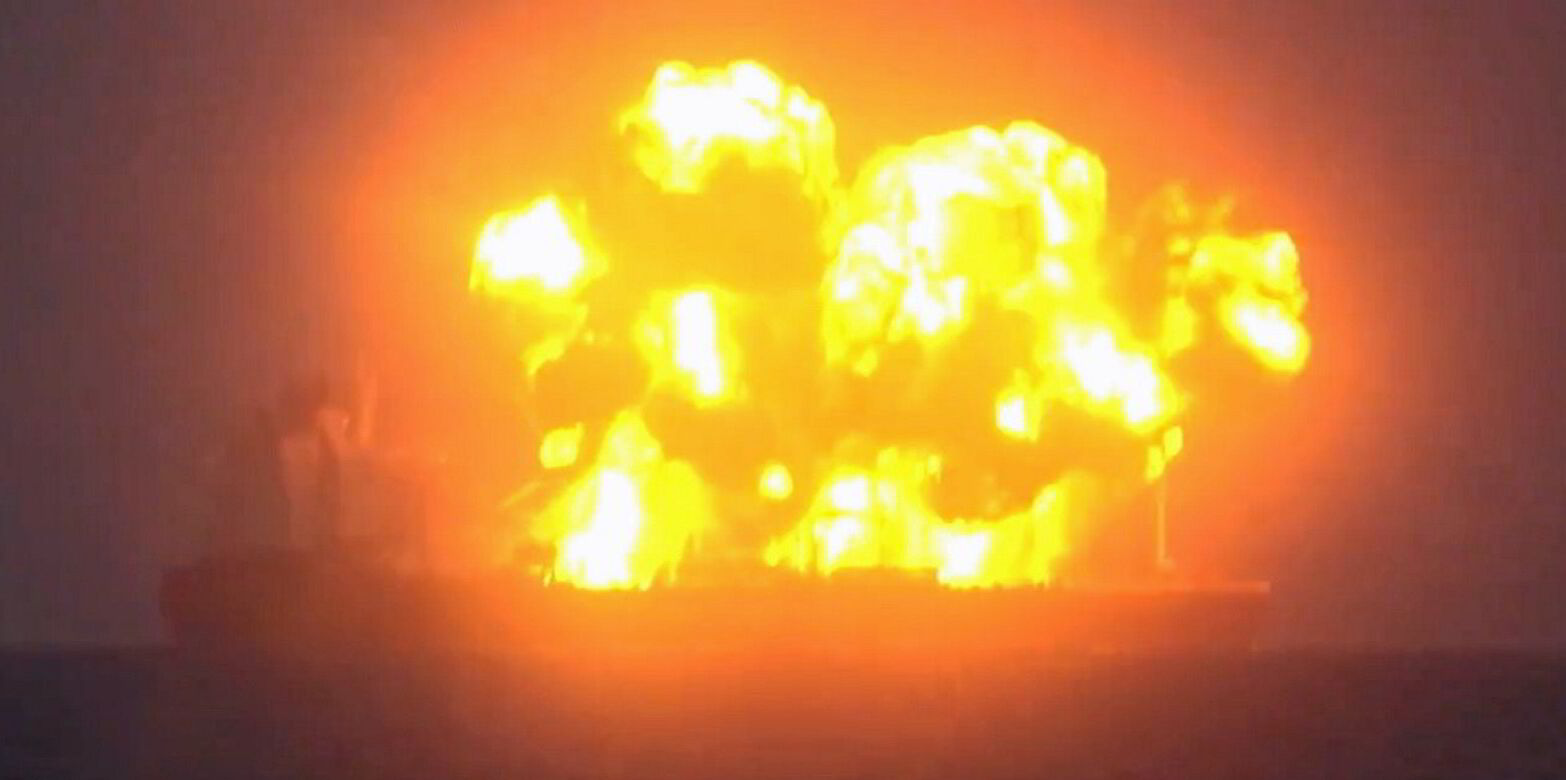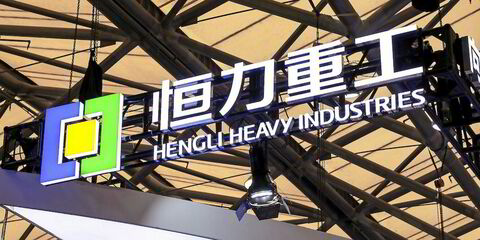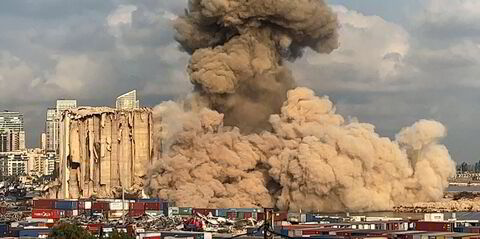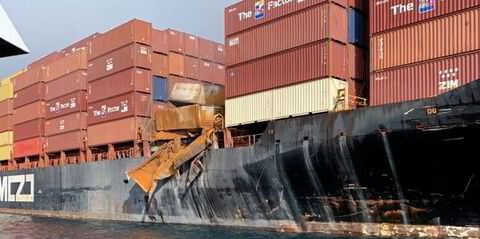Increasing threats to ships in a dangerous world will focus minds this month as the insurance industry’s biggest trade body marks its 150th anniversary with a return to the city where it all began.
The International Union of Marine Insurance meets in Berlin from 15 September with geopolitics and sanctions, fire and cyber risks, and shipping’s drive to decarbonise, all high on the agenda.
The backdrop to the meeting is uncertainty in the global economy and relations between nations and how that will affect trading patterns.
Spikes in geopolitical tensions in the Red Sea, Black Sea and South China Sea have raised the spectre of a decline in globalisation, which would have a serious impact on shipping.
IUMI started life in 1874 when the shift to a new form of steam propulsion and a rapid growth in global trade highlighted the lack of rules and regulations within the competitive insurance sector.
Its membership is now responsible for 95% of marine premiums, secretary general Lars Lange told TradeWinds.
“What we’ve done for hundreds of years is to insure the perils of the sea, but they change,” he said.
“In the past, we may have insured a sail or the wooden hull of a vessel. Nowadays, it may be cyber or other things, and we should adapt — and we do.”
The gathering in Berlin will assess some of the key developments in shipping and marine insurance that will play out for underwriters in the coming year.
Lange said “geopolitics and asset safety” will frame the conference that is to assess the threat from growing tensions in the South China Sea, adding to existing conflicts in the Red Sea and Black Sea.
IUMI is made up of 42 national marine market associations, and talks will include representatives from China, the Philippines, Japan and Taiwan — some of the key players in the territorial and political disputes of the South China Sea.

One-third of global shipping is estimated to pass through the region, where underwater oil and gas rights and fishing rights are fiercely contested. Adding to those tensions are China’s increasingly aggressive actions against self-governing Taiwan, which it considers a breakaway province.
IUMI, a policy and lobbying organisation, has spoken up for the insurance industry over conflicts including how the oil price cap should be framed by the US and its allies to try to limit Russian fossil fuel revenues following the invasion of Ukraine.
And it was involved in the short-lived United Nations deal to allow passage for Ukrainian grain exports through safe corridors in the Black Sea.
Lange said that the initiative foundered in large part on Russia’s inability to secure Western insurance for its fertiliser exports because of G7-led sanctions. Many insurers had pulled out of all Russian-related business to stay on the right side of complex rules.
In the first year of the war, shipping and insurance companies were hit with a blizzard of complex sanctions packages.
“Companies were struggling to read again and again every week 220 pages of European regulation, which do not in plain text tell you what is forbidden,” said Lange. “It is a permanent catch-up — you have to endeavour not to miss anything on the sanctions side.”
He said workshops and webinars run by the sanctions regulators have helped the industry make better-informed decisions.
Geopolitics and climate change issues that have affected traffic through the Panama Canal, owing to low water levels, have also played their part in the complexity of assessing risk in global supply chains.
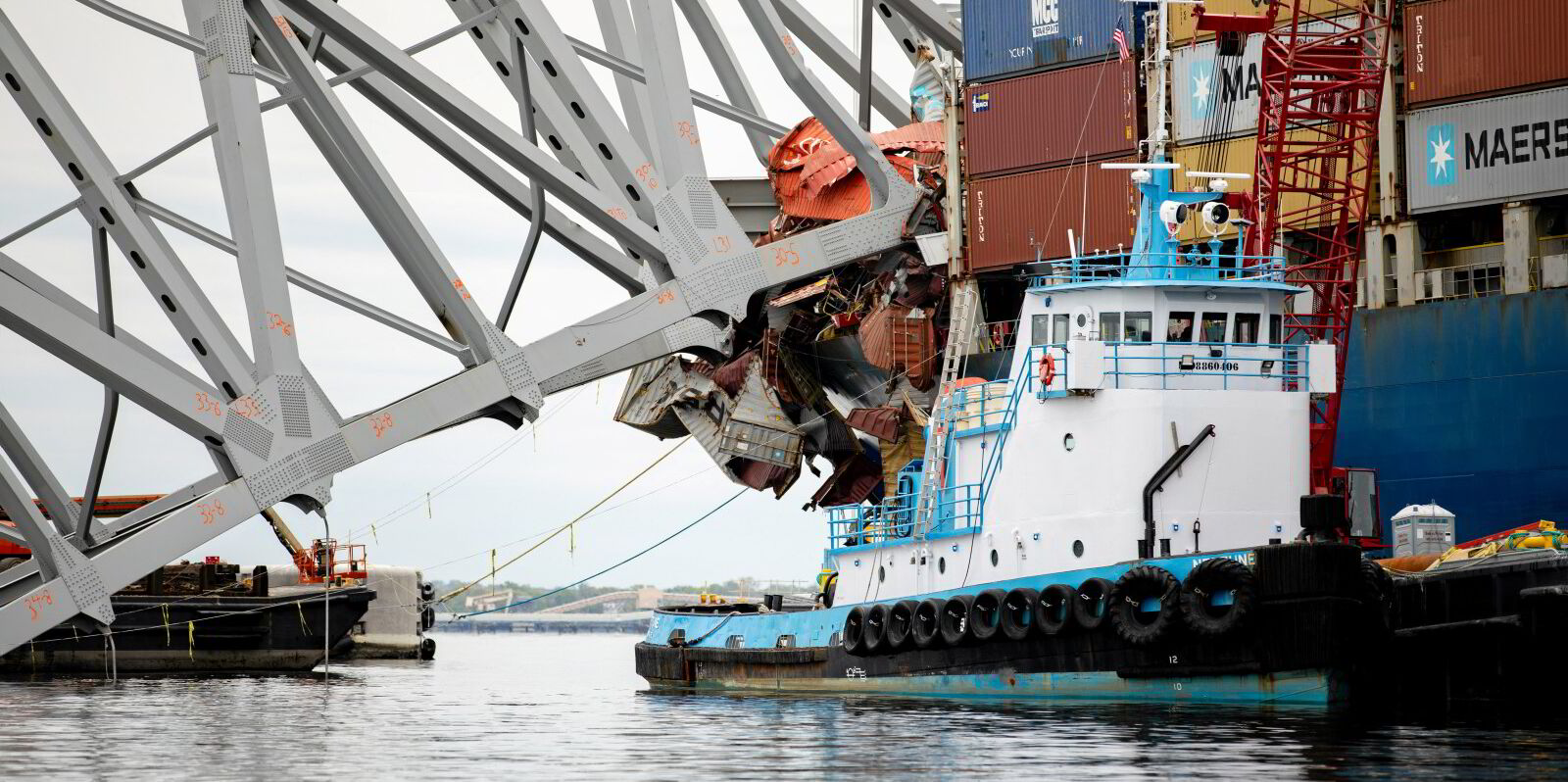
Diverting ships from the Red Sea can add two weeks to a voyage, with potential knock-on impacts for cargo cover of perishable goods.
The concern for the insurance market is how that will develop for industries that rely on just-in-time deliveries.
“Is international trade somehow diminishing again … will it get more local again?” asked Lange.
The International Union of Marine Insurance was founded in Berlin in 1874 after a period of chaos in insurance markets.
A shipping boom had led to many new insurers entering the market — but the extra competition sent premiums plunging and many of the new companies went bust, highlighting structural problems in the sector.
Marine insurance policies have been in existence for hundreds of years, but a growing steam-powered long-haul fleet during the 19th century demanded greater certainty for owners and insurers.
IUMI — set up by 39 companies from Germany, Austria, Russia and Sweden — emerged from the debris of the insurance market meltdown to set proper rules for marine underwriters. It built a membership of more than 200 countries by 1939 and scored a first by appointing a female secretary general, Margareta Frenzi, in 1921.
Strongly German in flavour, the group’s work was interrupted by the two world wars. Its offices and all its files were destroyed in World War II and only two members of its 14-strong secretariat survived.
It resumed its work in 1946 in Sweden but as a new umbrella organisation representing national marine insurance associations rather than companies.
It built a committee structure to deal with the emerging issues of the day, a set-up that largely continues. Brokers and agents were also excluded.
Following its immediate post-war exile, the German association was readmitted at a meeting in Eastbourne, in the UK, in 1950.
The union represents 42 national and marine market insurance and reinsurance associations, and has operated under secretary general Lars Lange for the past decade.
It says it includes associations that underwrite 95% of policies, measured by premiums, in the global market.
“So what does that mean? Do we have to adapt, or do we have to adjust our perception about what is risky and what is not?”
The insurance sector is also at the forefront of discussions about new fuels — some of them toxic — and how they would be used safely in a new generation of ships.
The increased cost of the fuels and transport could also lead to an increase in shorter-haul trade. Will it be realistic to ship wood from Latin America to Asia for furniture manufacturing, only to return to Europe for sale?
The destruction of a bridge in Baltimore by the 9,962-teu container ship Dali (built 2015) in March following a loss of power could have an impact on the sector too.
Although the cost of damage to the bridge and other third-party claims would first fall on the protection and indemnity clubs — which are not part of IUMI — most of the estimated $2bn to $4bn costs could be borne by reinsurers, which are.
“We have a keen interest — we see these liabilities rising. So far, we pay more attention to these major incidents … and the Dali is a good example,” Lange said.
The threat of total losses from fire highlights the growing risk from fires and the transport of batteries to fuel a green revolution.
Individual hull insurance claims exceeding $50m were reported for the first time in more than a decade in 2023 following fires on vessels, according to the Nordic Association of Marine Insurers.
The previous year brought only one claim above $30m, and the year before that none. The figures demonstrate the continuing concerns about onboard fires and the trend towards bigger and more valuable ships.
The potential dangers posed by lithium-ion batteries are a priority issue for IUMI, to understand the fire risk better. Investment is required in heat detection and improvements in training and techniques to put out blazes if they do start.
The wider debate will feed into how “container vessels have to be built in the future so that we don’t get one nearly total loss after another due to fire”.
The risk to the insurance sector is not limited to oceangoing merchant vessels. Lange highlighted the huge cost following a big fire at the Lurssen shipyard in Bremen, Germany in 2018, which led to a $700m hull claim after it destroyed a superyacht under construction.
The fire was “more expensive than the whole hull loss of Costa Concordia”, the cruise ship that sank in 2012.
Read more
- ‘Thinking and breathing shipping’: West of England chief opens up on diversification drive
- War risk market ready to keep Black and Red Sea shipping afloat, says IUMI
- $1bn solution: How AI is helping Japanese giant MOL fight risk of electric vehicle fires
- Marine insurers to step up efforts to improve diversity and inclusion
- Maersk ship cuts short Greek trip after container catches fire
